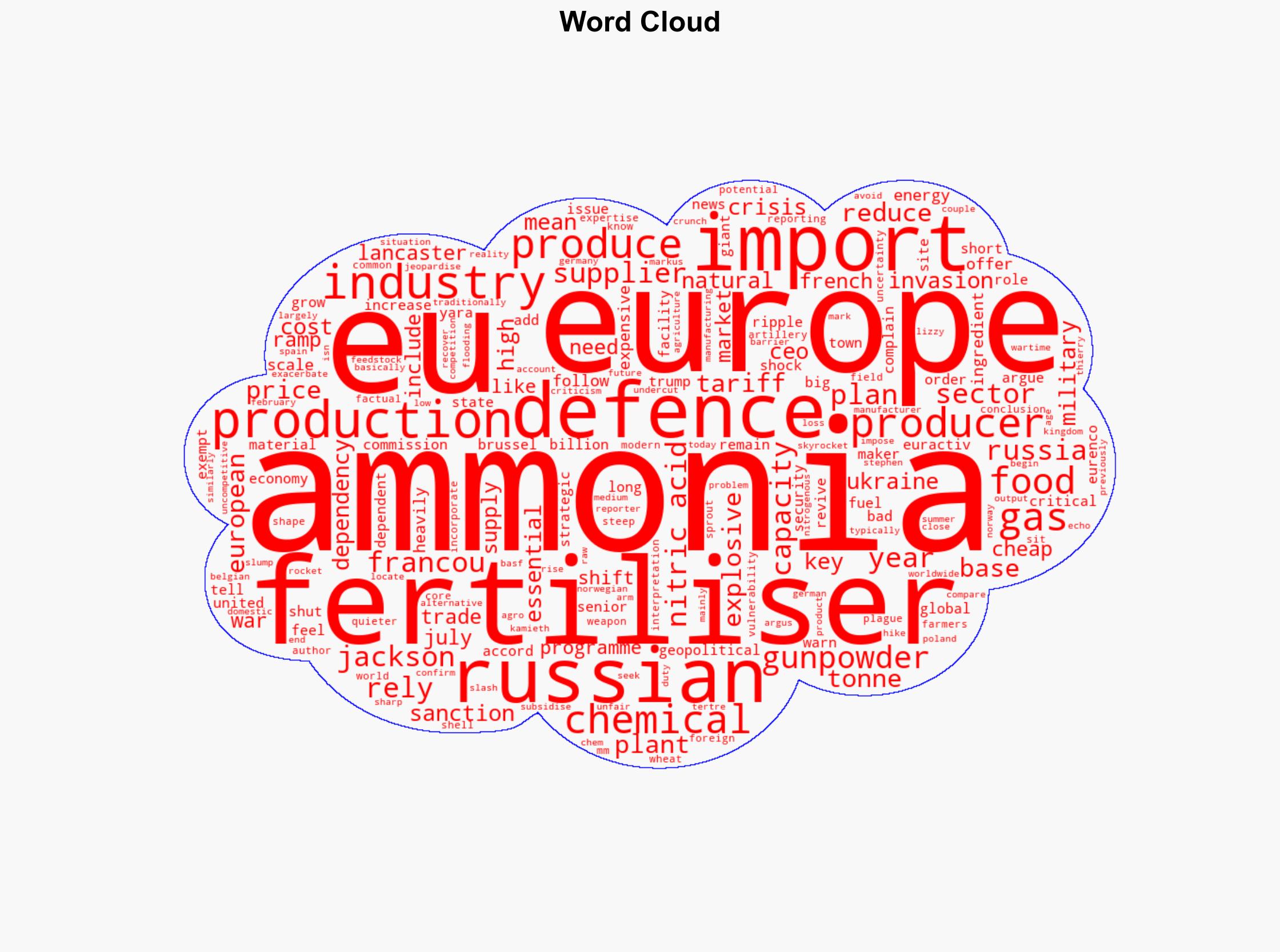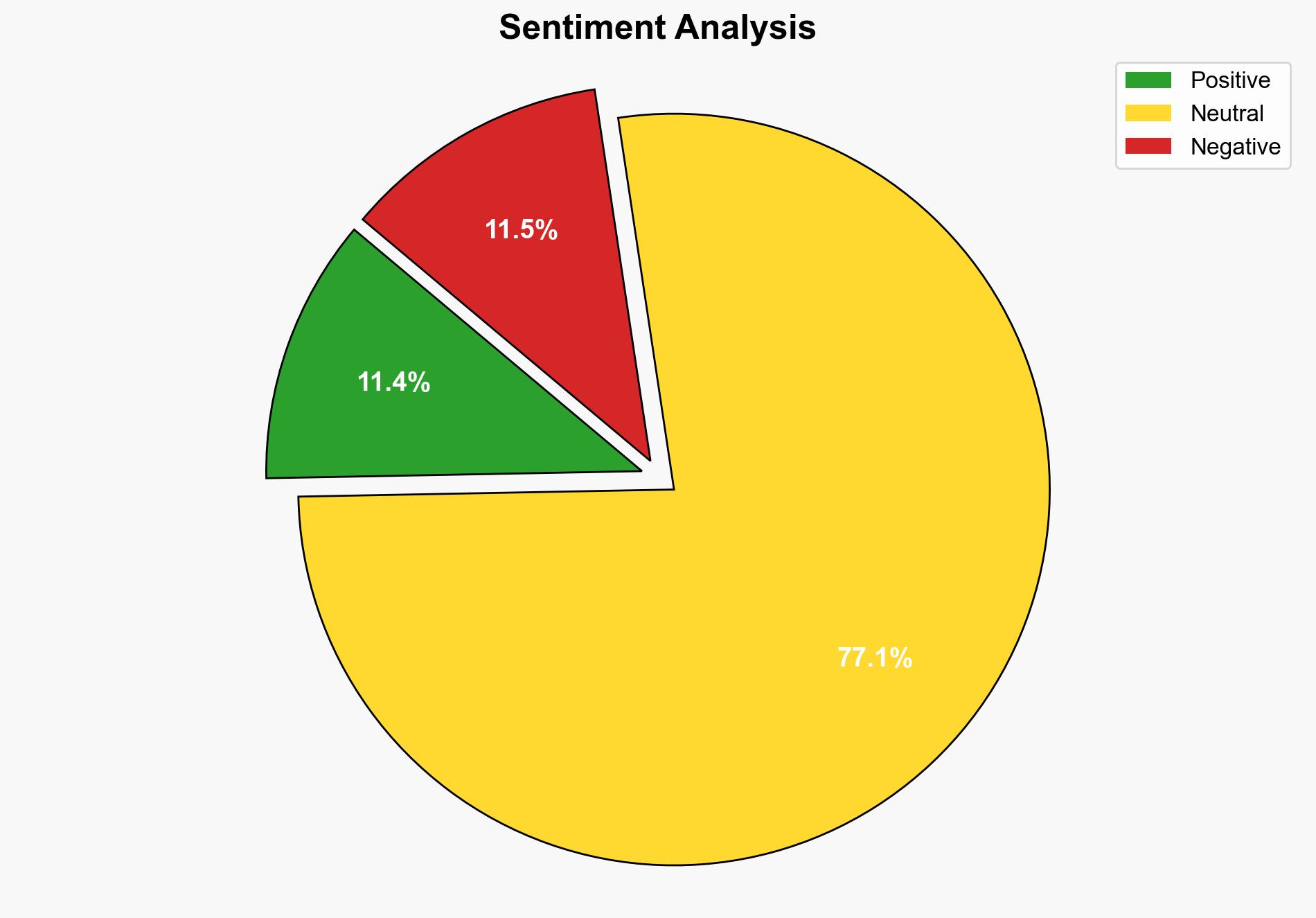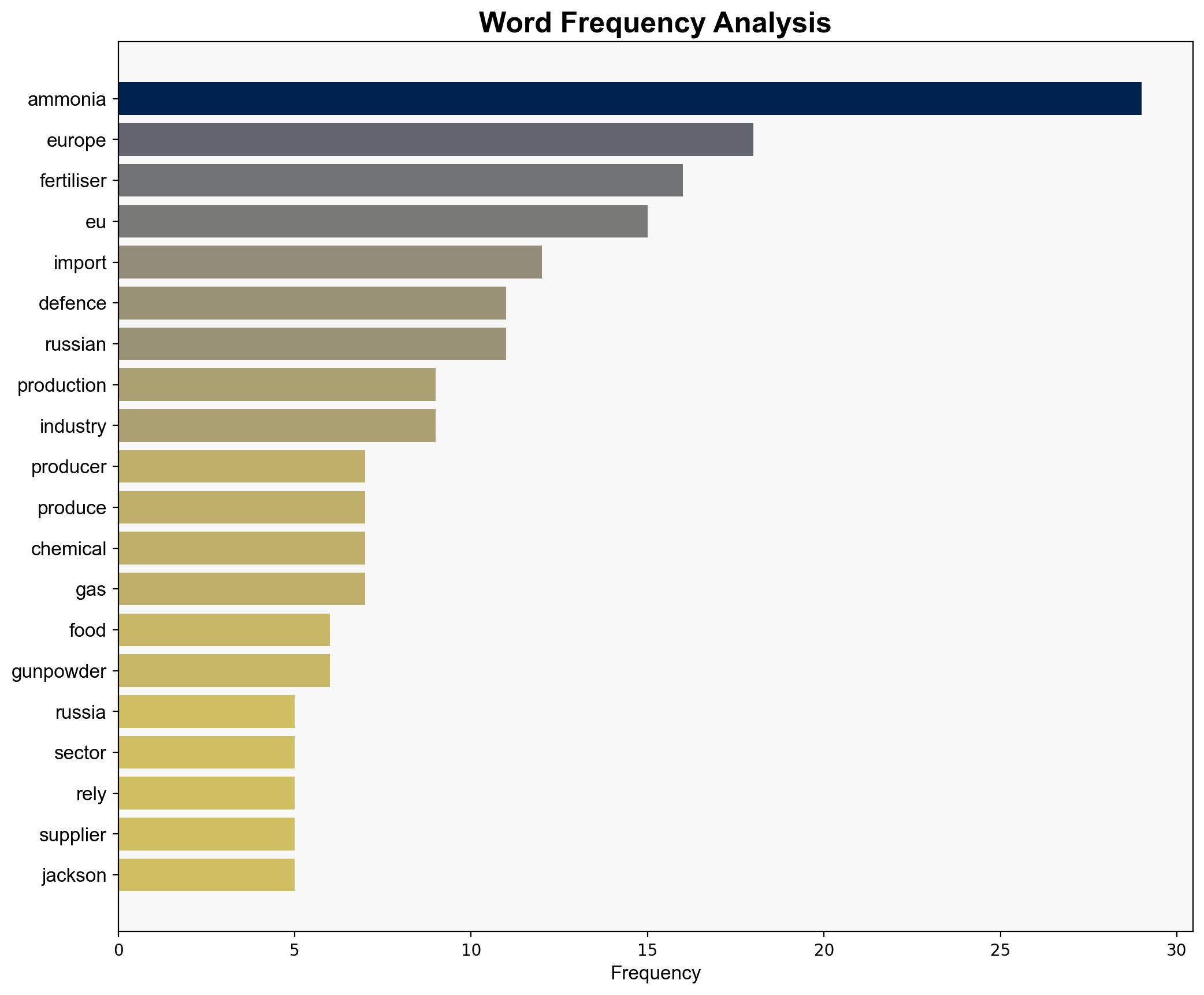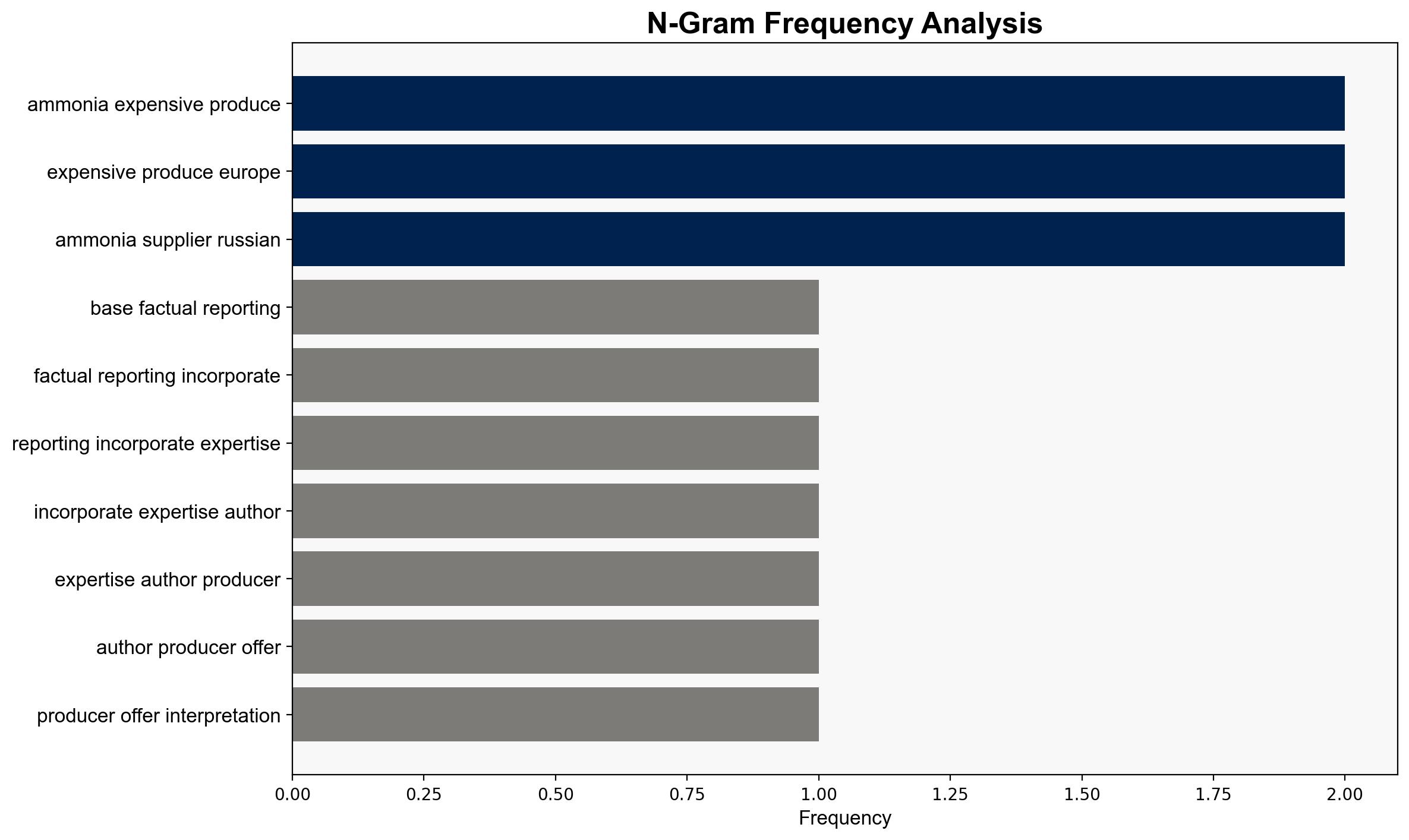How a fertiliser crunch made Europes defence industry more vulnerable – EURACTIV
Published on: 2025-08-06
Intelligence Report: How a Fertiliser Crunch Made Europe’s Defence Industry More Vulnerable – EURACTIV
1. BLUF (Bottom Line Up Front)
The strategic judgment is that Europe’s defence industry is increasingly vulnerable due to its reliance on imported ammonia, exacerbated by geopolitical tensions and energy crises. The most supported hypothesis is that the EU’s dependence on foreign ammonia imports, particularly from Russia, poses a significant risk to both agricultural and defence sectors. Confidence level: Moderate. Recommended action: Diversify ammonia supply sources and invest in domestic production capabilities.
2. Competing Hypotheses
1. **Hypothesis A**: The EU’s defence industry vulnerability is primarily due to its reliance on Russian ammonia imports, which are exempt from sanctions to protect food security, thus creating a strategic dependency.
2. **Hypothesis B**: The vulnerability stems from broader energy market dynamics and high production costs in Europe, which make domestic ammonia production uncompetitive, regardless of Russian import dynamics.
Using ACH 2.0, Hypothesis A is better supported due to the explicit exemption of ammonia from sanctions and the strategic implications of relying on a geopolitically unstable supplier.
3. Key Assumptions and Red Flags
– **Assumptions**: It is assumed that alternative ammonia suppliers can be accessed without significant cost or logistical barriers. Another assumption is that geopolitical tensions will not escalate to the point of disrupting existing import channels.
– **Red Flags**: The exemption of ammonia from sanctions could be a strategic vulnerability if geopolitical tensions with Russia worsen. There is also a potential blind spot in assuming that other suppliers can fill the gap without similar geopolitical risks.
4. Implications and Strategic Risks
The reliance on Russian ammonia could lead to supply disruptions if geopolitical tensions escalate. This dependency also limits the EU’s strategic autonomy in both agricultural and defence sectors. Economic risks include increased costs and potential shortages, while geopolitical risks involve leverage by Russia. There is a potential cascading threat if other critical materials face similar vulnerabilities.
5. Recommendations and Outlook
- **Mitigation Actions**: Accelerate investment in domestic ammonia production facilities and explore partnerships with alternative suppliers such as the United States.
- **Scenario Projections**:
– **Best Case**: Successful diversification of supply reduces dependency on Russian imports, stabilizing both agriculture and defence sectors.
– **Worst Case**: Geopolitical tensions lead to a disruption in ammonia imports, causing significant shortages and increased costs.
– **Most Likely**: Gradual diversification efforts reduce dependency over time, but short-term vulnerabilities persist.
6. Key Individuals and Entities
– Stephen Jackson
– Lizzy Lancaster
– Markus Kamieth
– Thierry Francou
– Yara (Norwegian fertiliser producer)
– BASF (German agro-chemical giant)
7. Thematic Tags
national security threats, geopolitical risk, energy dependency, supply chain vulnerability





